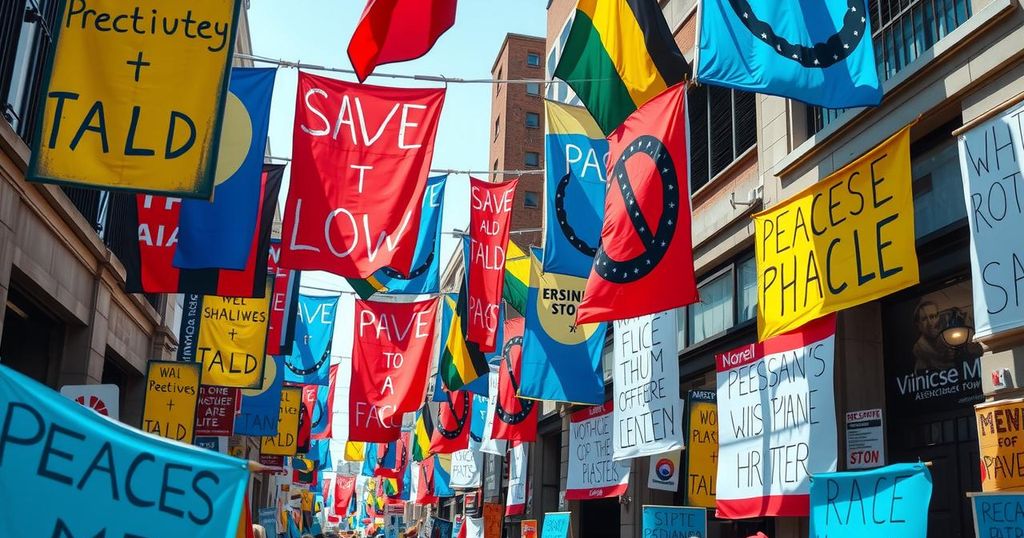Repression of Social Protest in Argentina: A Cause for Concern
The article discusses the violent repression of social protests in Argentina on March 12, where over twenty were hospitalized and 114 were arrested amid a demonstration against pension and medicine cuts. The government has increasingly used force to suppress dissent, criminalizing protests. Authorities have made alarming statements portraying protesters as threats to stability, reflecting a dangerous shift towards authoritarianism that undermines democratic rights.
On March 12, social and human rights organizations expressed grave concerns over the violent repression of a social protest in Argentina. The “march for the retired” has been occurring weekly in Buenos Aires, protesting pension cuts and reduced access to medicines amidst severe economic austerity measures. The law enforcement’s actions to disperse the protest were deemed abusive and inconsistent with regional and international standards protecting the right to protest, resulting in over twenty hospitalizations and 114 arrests, including two minors.
During the protest, an elderly woman was struck by police, and photographer Pablo Grillo suffered severe injuries from a tear gas canister, subsequently hospitalized. Additionally, two children were affected by the tear gas while leaving school. Law enforcement indiscriminately used rubber bullets and pepper spray against protesters, as people of all ages were dispersed from the National Congress area using rubber bullets, tear gas, and water cannons.
The government of Javier Milei had recently repealed regulations banning the use of gas guns during protests, thus permitting more aggressive tactics. A decree issued in December 2023 criminalized demonstrations involving road blockades, authorized security forces to use firearms in protest contexts, and allowed the collection of information to identify and criminalize protest participants.
This repression and criminalization of protests have become entrenched tools for the Argentine government to suppress dissent, as demonstrated by arbitrary detentions and numerous injuries in the first months of 2024. The incident on March 12 underscored a troubling trend of increasing violence and unlawful detentions during protests.
Moreover, the Argentine government has constructed a narrative framing the demonstrations as threats to governmental stability. High-ranking officials have labeled protests as “an attempt to destabilize the government” and referred to protesters as “terrorist leaders.” The Minister of Security defended the police’s aggressive actions, threatening to criminalize demonstrators and expel migrant participants, reinforcing a disturbing escalation of violence against dissenting voices.
Organizations urge the Argentine government to fulfill its international commitments and investigate police misconduct regarding protest repression. These actions reflect a broader concern regarding the shrinking civic space in Argentina and the rising tide of authoritarianism, implications of which extend beyond national borders, affecting the broader Latin American region.
The repression of social mobilization in Argentina signals a disturbing shift towards authoritarian governance that infringes upon democratic freedoms. The violent actions against protesters, including the use of harmful weapons and detention of individuals, highlight urgent concerns regarding human rights practices. Advocacy for the protection of civil liberties is imperative in maintaining a healthy democratic society, and collective regional support for democratic principles is essential for addressing rising authoritarianism.
Original Source: www.wola.org




Post Comment